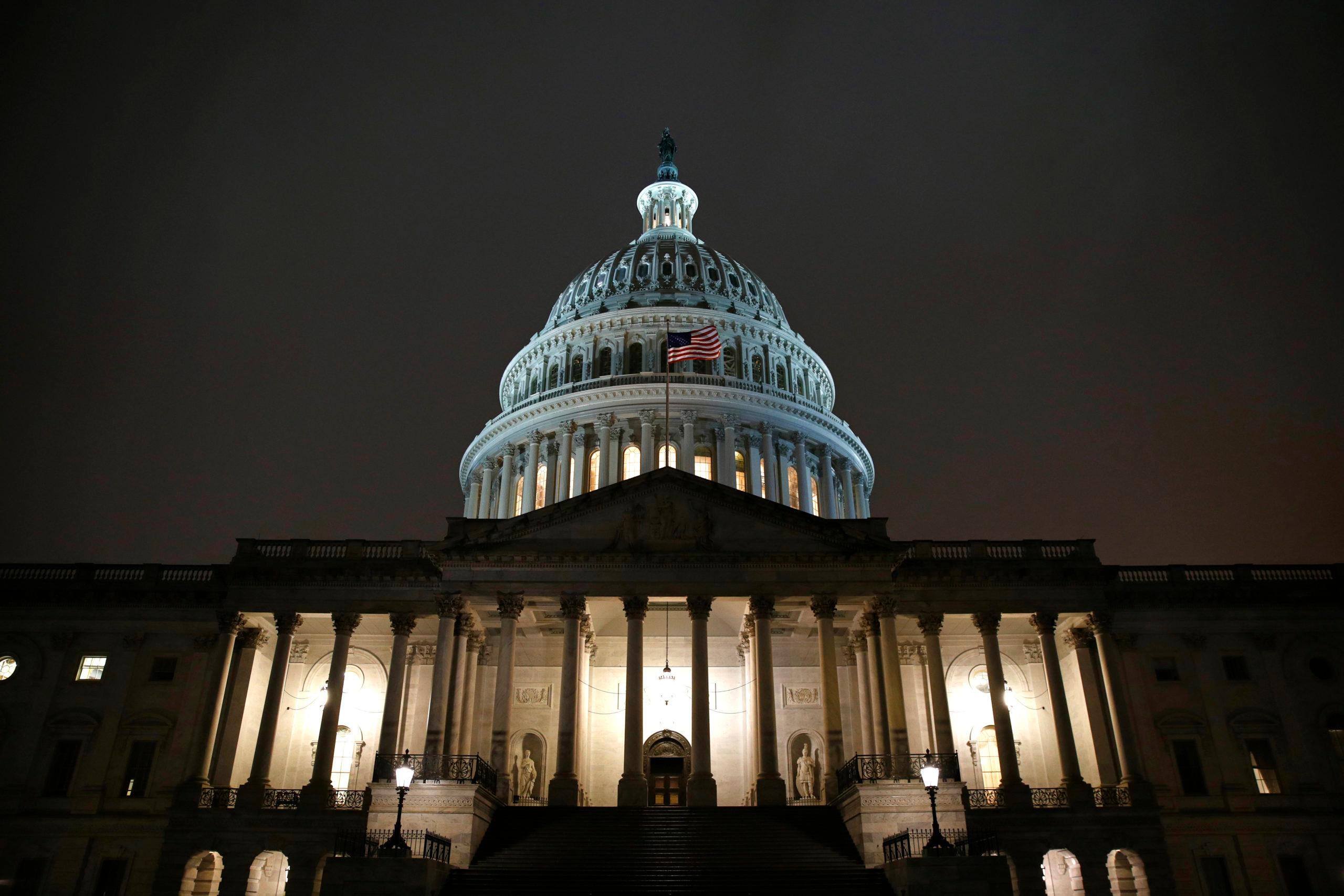
The House passed a $1.9 trillion coronavirus relief package, called the American Rescue Plan, on Wednesday 220-211 in a party-line vote.
Only Democratic Rep. Jared Golden of Maine voted with Republicans against the measure. It now heads to the desk of President Joe Biden, who pushed for a big, bold relief bill.
Republicans opposed the bill for several reasons, including the cost, the already-ballooning deficit, and that it will trigger automatic cuts in several federal programs like Medicare.
Rep. Lauren Boebert dismissed the bill as a “trashy spending spree.”
“This legislation uses COVID like cheap drugstore concealer, masking the nasty truth about Democrat spending,” said the freshman Republican from Rifle.
She argued it doesn’t do enough to re-open schools or help businesses that have had to close.
“Only 9 percent of this bill is going to address COVID-related issues,” Boebert said.
The 9 percent point has been repeated by many Republicans. A spokesperson for House Minority Leader Kevin McCarthy said it refers to how much of the funds will go to a national vaccination program.
But Democratic Sen. John Hickenlooper said he’s heard from thousands of Coloradans who need help now.
“This relief bill provides stimulus checks and extended unemployment benefits, vaccines, small business grants, and many other critical programs,” Hickenlooper said in a statement. “We’re close to the end of this pandemic — we can’t let anyone fall through the cracks.”
A number of provisions will help Coloradans, although precisely how much money the state will receive for all of them are not yet available.
Stimulus Checks
Yes, a check will be sent to many Americans. A person earning $75,000 a year or less, or a married couple jointly earning less than $150,000 or less, will get $1,400 per person, including for all dependents. But the phase-out will be faster than past stimulus checks. It will stop at individuals earning $80,000 a year or $160,000 for a married couple.
Anyone with a Social Security Number will be eligible this time around, regardless of whether another member of their family does not have one. So, if a child is an American citizen with an SSN, that child will be eligible for the check even if his or her parents are undocumented.
Federal Unemployment Insurance
One reason many Democrats pushed to move the bill swiftly through the budget reconciliation route versus a long, drawn-out bipartisan negotiation was to avoid a lapse in the federal unemployment boost which expires on March 14.
After a hold-up lasting several hours last Friday, Senate Democrats tweaked the federal unemployment insurance benefit to ensure that Sen. Joe Manchin would vote for it.
The Rescue Plan now includes a $300-a-week federal unemployment boost through Sept. 6. The bill also makes the first $10,200 worth of benefits tax-free for households earning less than $150,000.
Child Tax Credit
This is a big change that Democratic Sen. Michael Bennet has been pushing for. He stresses it could cut the number of children living in poverty in half. Parents could receive $3,600 annually per child up to the age of 6, and $3,000 per child aged 6 to 17.
Families can opt to receive part of those funds monthly, making it essentially a guaranteed income for families. Currently, the credit would just be for a year. But Democrats in both chambers are hopeful it could be made permanent.
State and Local Aid
For the first time since the CARES Act was passed last spring, state, local and tribal governments will get a total of $350 billion in direct aid.
Unlike last time, smaller communities will be eligible for direct disbursements. Instead, states will split about $195 billion, while nationwide, cities and counties will receive $130 billion. Tribes will get $20 billion. And there is another $10 billion reserved for capital projects.
Colorado is expected to receive just under $6.1 billion in total. It’s estimated that the state’s share will be about $3.95 billion. There would be $1.1 billion going to counties, $549 million to 16 metro cities and $278 million divided between more than 250 smaller towns and municipalities across Colorado.
Help for Businesses
The ARP funds a number of programs designed to help small businesses. The bill includes $7 billion for the Paycheck Protection Program, and expands the program to include more labor, agricultural and community nonprofits.
There will be over $28 billion in grants for the hard hit restaurant and bar industry and $1.25 billion for music and other performance venues that have been closed throughout the pandemic.
And the Emergency Injury Disaster Loan (EIDL) program will get a $15 billion boost. Small businesses, those with fewer than 10 people, will be given priority for some of the long-term, low-interest rate loans from the Small Business Administration.
Education
More than $125 billion is slated for public schools (K-12) to get back to in-person learning, address learning loss and help students recover from the long-term impacts of the pandemic. Not all of the money will be used in this year, which is a point Republicans emphasized in their criticism.
There is also $122 billion for the Elementary and Secondary School Emergency Relief Fund and $2.75 billion for private schools. According to the Congressional Research Service, Colorado’s state grant from the ESSER Fund could top $1 billion and allocation of funds to Local Educational Agencies could also top $1 billion. The estimated state grant for Colorado for non-public schools could be over $38 million.
Additionally, the bill has $39 billion for child care and Head Start. Colorado would get a total of about $466 million in for the Child Care and Development Block Grant and Child Care Stabilization Grants. And Colorado could get over $1 billion for Head Start.
College and universities will get $39.6 billion. Half of that money would have to go to help students, the other half is to help schools deal with the increased costs of operating during the pandemic and make up for lost revenue. Colorado’s grant through the Higher Education Emergency Relief Fund would be about $495 million.
And all the rest
Other funds that Colorado will benefit from include:
- $25 billion in rental assistance
- $5 billion for people experiencing homelessness
- $9.96 billion for mortgage and utility assistance
- $30.4 billion for public transportation
- $14 billion to develop, distribute and administer vaccines
- $47 billion toward testing and contract tracing
- $7.7 billion to hire a health force of about 100,000 public health workers.
- $10 billion for domestic production of PPE, vaccines and other medical supplies
- $8.5 billion rural hospitals and health care providers
- Extending the 15 percent increase in SNAP benefits through September
- Expand and strengthen the Affordable Care Act by increasing subsidies for people to purchase health insurance.
CPR’s coverage of Colorado’s congressional delegation focuses on accountability and on providing information constituents need to live their lives. Read more about our priorities here.









